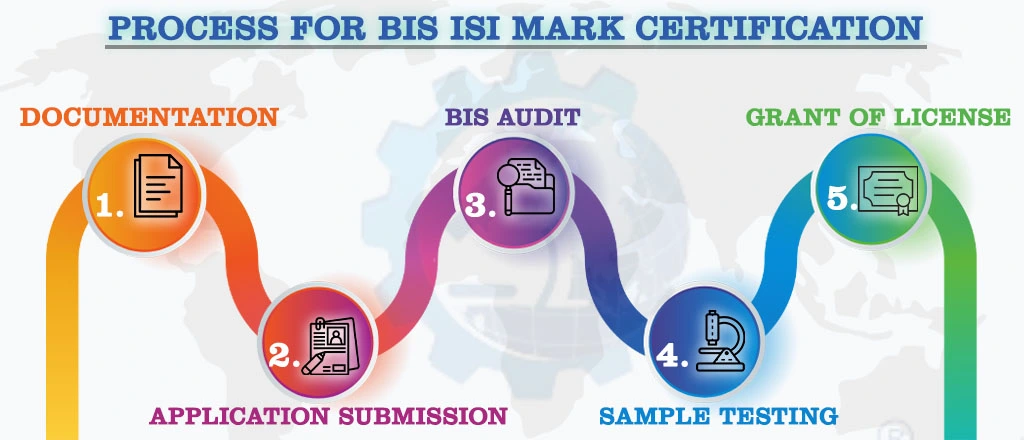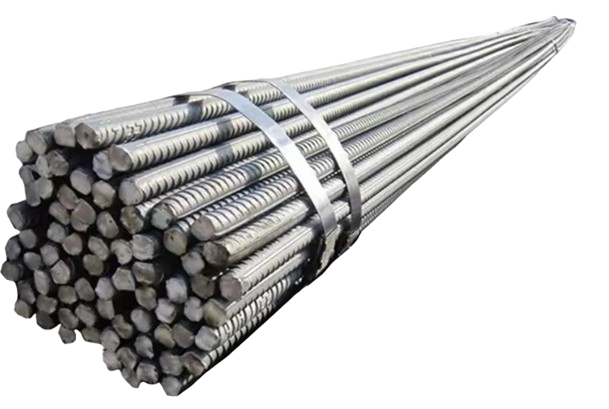BIS Certification for High Tensile Steel Bars used in Pre-stressed Concrete IS 2090:1983
High tensile steel bars used in pre-stressed concrete are crucial components that enhance the structural integrity and load-bearing capacity of concrete structures. These bars are specifically chosen for their superior tensile strength, which allows them to withstand high stresses and loads. By embedding these steel bars in concrete and applying tension before the concrete sets, pre-stressed concrete structures can effectively counteract tensile forces that would otherwise cause cracking or failure. This method not only increases the durability and longevity of concrete structures but also allows for the construction of longer spans and thinner sections, reducing material usage and overall construction costs. High tensile steel bars play a critical role in ensuring the safety, efficiency, and resilience of modern concrete construction projects.
Importance of BIS Certification
BIS certification for high tensile steel bars used in pre-stressed concrete is essential to ensure these materials meet rigorous quality and safety standards mandated by the Bureau of Indian Standards (BIS). This certification verifies that the steel bars possess the necessary mechanical properties, such as high tensile strength, ductility, and corrosion resistance, which are crucial for their performance in pre-stressed concrete applications. Adherence to BIS standards ensures that the steel bars can effectively withstand the applied stresses and loads, preventing structural failures and ensuring long-term durability of concrete structures. BIS certification also promotes uniformity in quality, fosters consumer confidence, and supports compliance with regulatory requirements, thereby enhancing the reliability and safety of pre-stressed concrete construction across India.
Indian StandardIS 2090:1983
As per the latest Quality Control Order (QCO) issued by the Ministry of Steel, Government of India on 5th February 2024, high tensile steel bars used in pre-stressed concrete must conform to the Indian Standard IS 2090:1983. This standard specifies the essential requirements for high tensile steel bars, including their chemical composition, mechanical properties such as yield strength and elongation, dimensional tolerances, and testing methods. Compliance with IS 2090:1983 ensures that these steel bars possess the necessary strength, ductility, and durability to withstand the high stresses and loads encountered in pre-stressed concrete applications. Adherence to this standard is critical to maintaining the structural integrity, reliability, and safety of pre-stressed concrete structures across various construction projects in India.
Key highlights
| Product Name | High Tensile Steel Bars used in Pre-stressed Concrete |
| Applicable Indian Standard | IS 2090:1983 |
| Applicable Certification Scheme | Product Certification Scheme (ISI Mark Scheme) Scheme 1 - Schedule 2 |
| Compliance Requirement | Mandatory |
| QCO Link | High Tensile Steel Bars used in Pre-stressed Concrete |
| Scope as per Standard | This standard covers the requirements for high tensile steel bars used in pre-stressed concrete. |
Tests
The following are the major tests for High tensile steel bars used in pre-stressed concrete.
- 1. Manufacture
- 2. Chemical composition
- 3. Nominal Size
- 4. Tolerances
- 5. Physical requirements
- 6. Tensile test
- 7. Constant strain relaxation test

NOTE:
For Detailed Information about the Procedure for BIS ISI Certification, Visit :
Timeline for BIS Certification
The approximate timeline to obtain BIS certification for Cold Rolled Steel Strips For Springs to use the ISI mark as per IS 2507: 1975 is as follows:
- For Indian Manufacturers (Standard Timeframe – 30 days)
- For Foreign Manufacturers (Standard Timeframe – 180 days)
Conclusion:
In conclusion, cold rolled steel strips for springs play a vital role in manufacturing durable and high-performance springs used across various industries. The BIS certification ensures these steel strips meet stringent quality and performance standards, guaranteeing their reliability, safety, and consistency. Adherence to the Indian Standard IS 2507:1975, as mandated by the latest Quality Control Order from the Ministry of Steel, enhances consumer confidence and supports regulatory compliance. By meeting these standards, manufacturers can ensure that their springs perform optimally in demanding conditions, thereby upholding industry best practices and contributing to the overall safety and efficiency of mechanical systems.
For more updates and detailed procedures, stay connected with Aleph INDIA and ensure your products are always compliant and top-quality.
International Audits & Participation
Testimonials
BIS REGISTRATION FOR ELECTRONIC & IT PRODUCT
In the era of globalization, world trade is growing rapidly and henceforth, Manufacturing and Import/Export businesses are also growing drastically...View More
BIS CERTIFICATE FOR FOREIGN MANUFACTURER
The Economy of India-the fastest developing economy on the globe with the capabilities that help it matches up with the biggest international...View More
PRODUCT CERTIFICATION SCHEME (ISI MARK) FOR DOMESTIC MANUFACTURERS
Anything a person buys from food to cars, clothes to electronics, branded to unnamed products there is always a question that wanders in one’s...View More
WIRELESS PLANNING AND COORDINATION (WPC)
WPC: Wireless means communication done from one point to another point without the wires and cables. Electromagnetic waves carry the ...View More
BUREAU OF ENERGY EFFICIENCY (BEE) CERTIFICATE
BEE CERTIFICATE: Energy is the future, and its conservation is the way of the bright future. Everyone claims the environment is important...View More
E-WASTE MANAGEMENT
E-waste is one of the world's fastest-growing trash streams. We currently manufacture almost 50 million tones of it each year...View More
View All Services
Request a call back.
Would you like to speak to one of our Senior Technical advisers over the phone? Just submit your details and we’ll be in touch shortly. You can also email us if you would prefer.






























